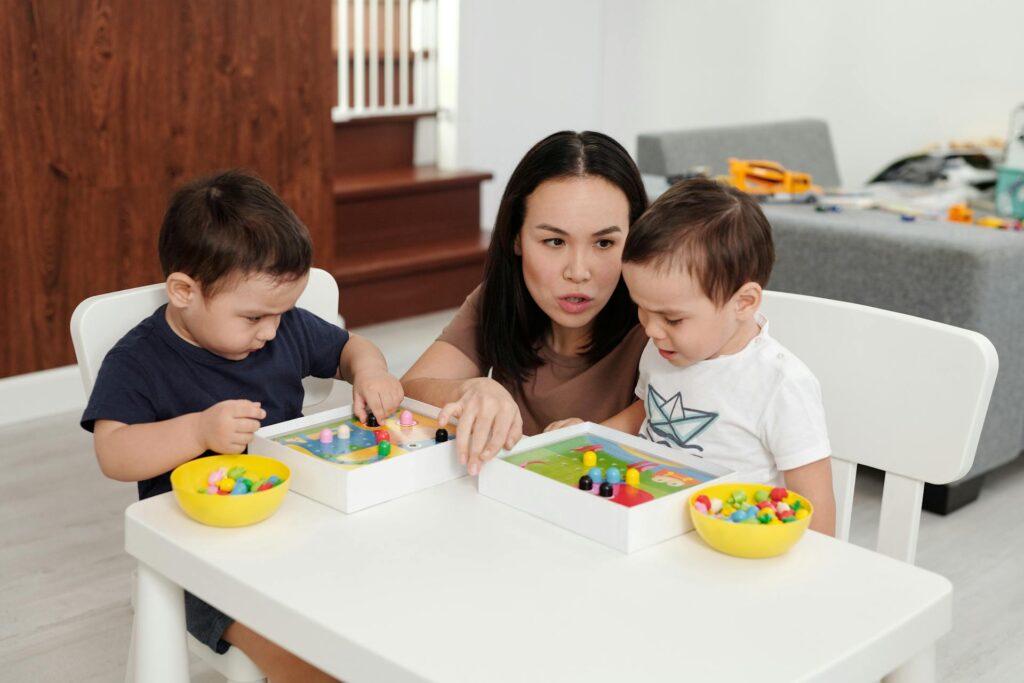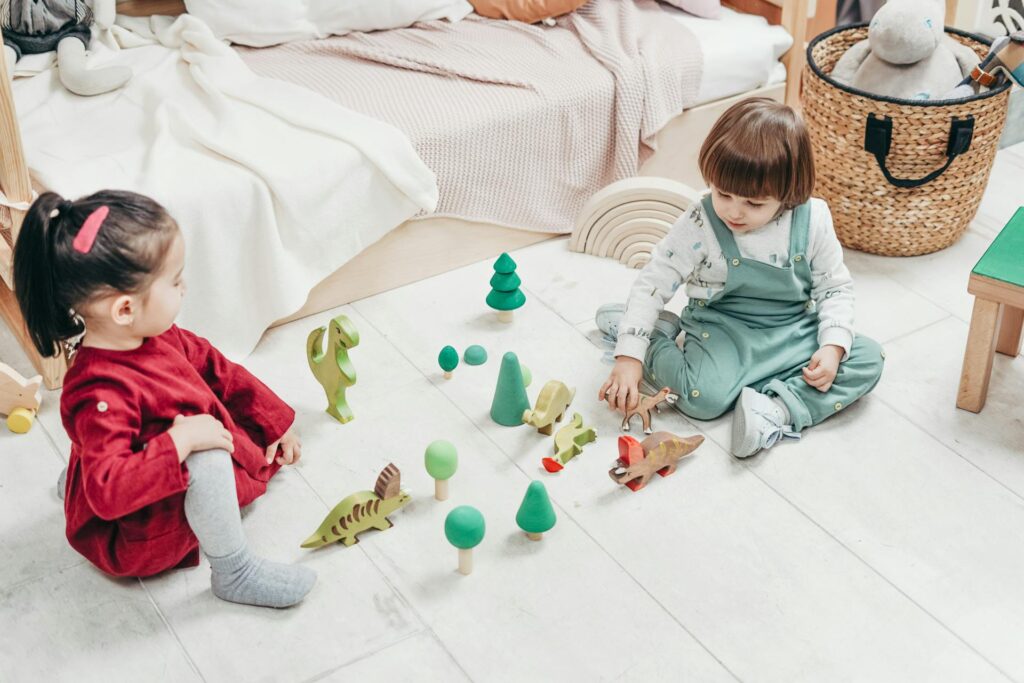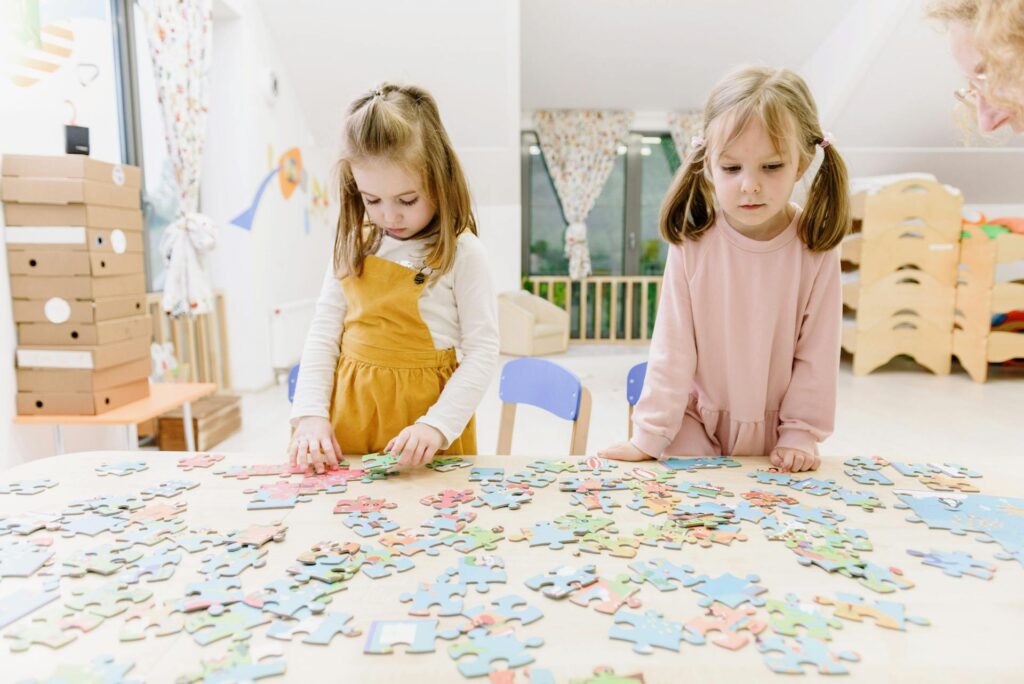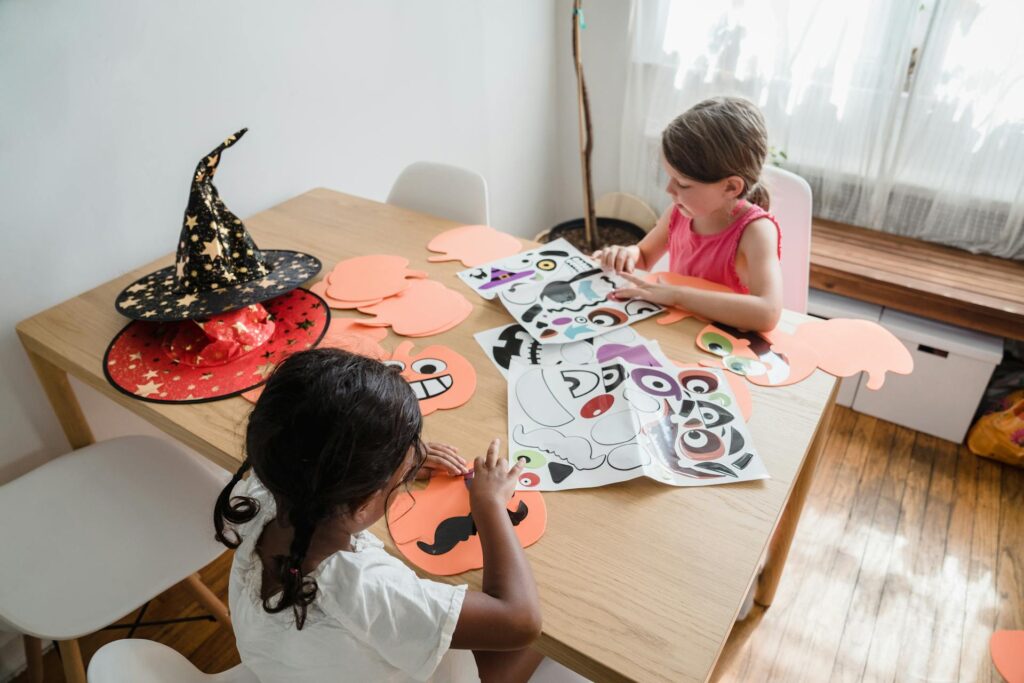Some of the links on this website are affiliate links, which means that if you click on them and make a purchase, I may earn a small commission at no additional cost to you. I only promote products and services that will add value to my readers. Thank you for supporting our work.
Play is widely recognized as the foundation of childhood development, and it is easy to understand why. Play-based learning is an effective method in early childhood education that taps into young children’s innate curiosity and boundless creativity. Through play, children explore their surroundings, ask questions, and experiment with ideas, significantly enhancing their cognitive, emotional, and social development.
This approach centers children at the center of their learning experiences, transforming education into a joyful and interactive process. This method makes learning enjoyable and equips children with essential skills and resilience that prepare them for future academic challenges and life experiences. By fostering a love for learning from an early age, play-based learning lays the groundwork for a successful future.
What Is Play-Based Learning?
Play-based learning is an engaging educational approach that includes structured and unstructured activities, allowing children to immerse themselves in imaginative, exploratory, and hands-on play. In this interactive environment, educators carefully design activities with specific purposes, considering each child’s developmental stages. These thoughtfully planned experiences promote essential skills such as problem-solving, critical thinking, and collaboration. By offering opportunities for children to explore their interests and interact with peers, play-based learning provides a strong foundation for cognitive, social, and emotional growth while making the learning process enjoyable.

1. Encourages Cognitive Development
Engaging in play is a vital pathway for promoting cognitive development in children. Through various playful activities, children are naturally immersed in experiences that foster problem-solving abilities and critical thinking skills. For instance, when children build with blocks, they have fun and improve their spatial awareness and mathematical skills as they learn to understand shapes, sizes, and balance.
Similarly, role-playing allows children to imagine themselves as different characters and narratives, which enhances their language development. In these imaginative scenarios, they practice storytelling techniques and expand their vocabulary, enriching their communication skills.
Moreover, play stimulates the formation of neural connections in the brain, which is crucial for laying a strong foundation for essential skills such as literacy and numeracy. This foundation is the basis for future academic success, making play an indispensable element of early childhood learning.
2. Promotes Social and Emotional Skills
Play-based learning provides a vibrant platform for children to engage with their peers meaningfully. Through collaborative activities, they share ideas, negotiate roles, and navigate conflicts, which enriches their social interactions. This dynamic environment cultivates essential skills such as:
Empathy and Understanding: As children explore different perspectives during play, they learn to appreciate the feelings and viewpoints of others, fostering deeper connections with their friends.
Effective Communication: Group play requires children to express their thoughts clearly and listen actively, enhancing their ability to convey ideas and emotions effectively.
Emotional Regulation and Resilience: Through experiences of triumph and disappointment in play, children learn to manage their emotions, bounce back from challenges, and adapt to various social situations.

3. Supports Physical Development
Engaging in activities such as running, climbing, and manipulating small objects is vital for a child’s physical growth and coordination. These experiences play a crucial role in developing gross and fine motor skills. Gross motor skills involve more significant movements, helping children build strength and coordination through activities like sprinting and climbing on playground equipment.
In contrast, fine motor skills are refined through tasks that require precision, such as grasping small toys, tying shoelaces, or writing with a pencil. These skills are essential for completing everyday tasks, like buttoning a shirt or using utensils. Furthermore, they lay the foundation for active participation in sports and other physical activities, fostering a lifelong appreciation for movement and health.
4. Enhances Creativity and Imagination
Play provides a vibrant platform for children to express their thoughts and emotions while exploring the fascinating world around them. Whether they’re wearing makeshift astronaut helmets and embarking on imaginary space missions or joyfully swirling bright colors with their fingers on a blank piece of paper, play becomes a powerful catalyst for their imaginative journeys. It stimulates their sense of wonder and nurtures essential creative thinking skills, enabling them to envision countless possibilities and bring their unique ideas to life.

5. Builds a Lifelong Love of Learning
When children participate in play-based learning, they associate education with joy, exploration, and curiosity rather than the stress and anxiety often linked to traditional study methods. This positive experience creates a supportive environment where learning becomes an enjoyable adventure. As a result, children develop strong motivation and enthusiasm for academic pursuits, setting the foundation for a lifelong love of knowledge and intellectual exploration that will benefit them throughout their lives.
6. Adapts to Individual Learning Styles
Every child is a unique learner with individual preferences and strengths. Play-based learning provides a flexible framework that allows educators to customize activities to meet each child’s interests and developmental needs. For instance, a visual learner may thrive with colorful, interactive displays that capture their attention. In contrast, hands-on learners often excel through tactile activities that let them manipulate materials and observe real-world applications. Additionally, an emerging storyteller can be inspired by imaginative play scenarios where they create narratives and characters, tapping into their creative potential. This adaptive approach enhances engagement and fosters a love for learning by meeting children where they are.
7. Developing Independence and Building Confidence
During playtime, children embark on journeys of exploration and experimentation, allowing them to discover their abilities and develop a sense of autonomy. As they engage in various activities, they make choices that give them ownership over their experiences. These playful interactions improve their problem-solving skills and significantly boost their self-esteem. This growing confidence is a strong foundation, preparing them for future challenges in formal learning environments and more structured dynamics.

Tips for Integrating Play-Based Learning at Home
Parents can support play-based learning by creating a nurturing environment at home.
- Provide open-ended toys like blocks, puzzles, and art supplies.
- Encourage outdoor play to develop physical skills and explore nature.
- Participate in role-playing games to enhance language and social skills.
- Set aside time for unstructured play, allowing children to lead the way.
In conclusion, play-based learning goes beyond straightforward enjoyment; it is a vital component of early childhood education that supports the overall development of young learners. By creating an environment where exploration, creativity, and social interaction flourish, this approach enables children to develop essential skills needed for their academic journey and personal growth.
For parents and educators, embracing the principles of play-based learning is one of the most effective strategies to support a child’s comprehensive development. Participating in this enriching and dynamic form of learning lays the foundation for a child’s future success, preparing them for school and a lifetime filled with opportunities and challenges.

